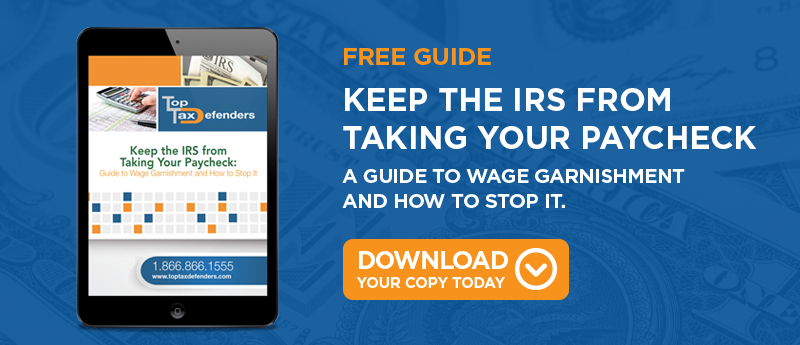
When you owe multiple creditors, you may find it difficult to keep up on payments and get your accounts paid off in full. Despite your best efforts to pay, your creditors may choose to garnish your wages.
If you are facing garnishment of your paychecks, you may wonder how many creditors can lay claim to your money at one time. You can prepare yourself financially by learning how garnishments work and how long creditors can continue to collect through this option.
Multiple Creditors and Their Claim to Your Paycheck
By federal law, in most cases only one creditor can lay claim to your wages at a single time. In essence, whichever creditor files for an order first gets to garnish your paycheck. Your other creditors must wait their turn unless the first creditor collects on less than the allowable percentage. In that case, another creditor's order can be put into effect up to the amount allowed by law to be taken out of each of your paychecks.
There are exceptions to this rule, however. Some types of debts, such as child support, alimony, and owed taxes, can be collected upon at the same times as other debts, such as credit card or medical bills. If you owe child support, back taxes, or alimony, it is possible for your paycheck to be garnished by both the state or federal government, as well as another creditor, such as a medical collection agency or a credit card company.
Garnishment Amounts
Many debtors who receive garnishment orders against them fear that the creditor will take most of their paychecks. However, laws exist that prevent companies from taking too much money and leaving you without sufficient funds to live on or to take care of your family.
Federal laws stipulates that creditors, except for the IRS and child support or alimony collection entities, must first get a court order to garnish. After they get the court's okay, these companies can then only take up to 25 percent of your paycheck each pay period. They can collect this amount each pay period until the debt is satisfied in full.
Some states, however, prevent creditors from claiming 25 percent and instead require them to collect a smaller percentage. Despite the federal law, the creditor must follow the garnishment laws in your state if that percentage is lower than 25 percent.
Some states also stipulate that a period of garnishment can only continue for a finite amount of time. Even if the debt is not paid off, the creditor must release the garnishment once it has reached the period of time allowed by your state's law.
Preventing Garnishment
If you owe significant amounts of debt, you could face months, or even years of being garnished. When you want to prevent this action against you, you would do well to consider some of the more common ways to prevent it. These methods include:
- Payment agreements: You can set up a monthly payment agreement with your creditor and pay a reasonable amount toward the debt. Most creditors will not garnish as long as you continue to make payments in good faith.
- Bankruptcy: You can file for a Chapter 7 or Chapter 13 bankruptcy. A Chapter 7 involves total liquidation of most of your debts, except for child support, alimony, and federal taxes. A Chapter 13 reorganizes your debt and allows you to make payments to your creditors through the court's trustee.
- Hardship Petition: Some states allow debtors to file a petition asking for exemption from garnishment because of their low incomes or financial hardships. The court may prevent a creditor from garnishing or order a smaller amount to be taken from your paychecks.
These methods of garnishment relief can extend the amount of time that you have to pay or forgive your debts entirely. They also prevent creditors from laying claim to your income.
Creditors are allowed to pursue collection activity like garnishment against debtors. You can protect your finances by learning how your paychecks can be affected if you owe more than one creditor at a time.




